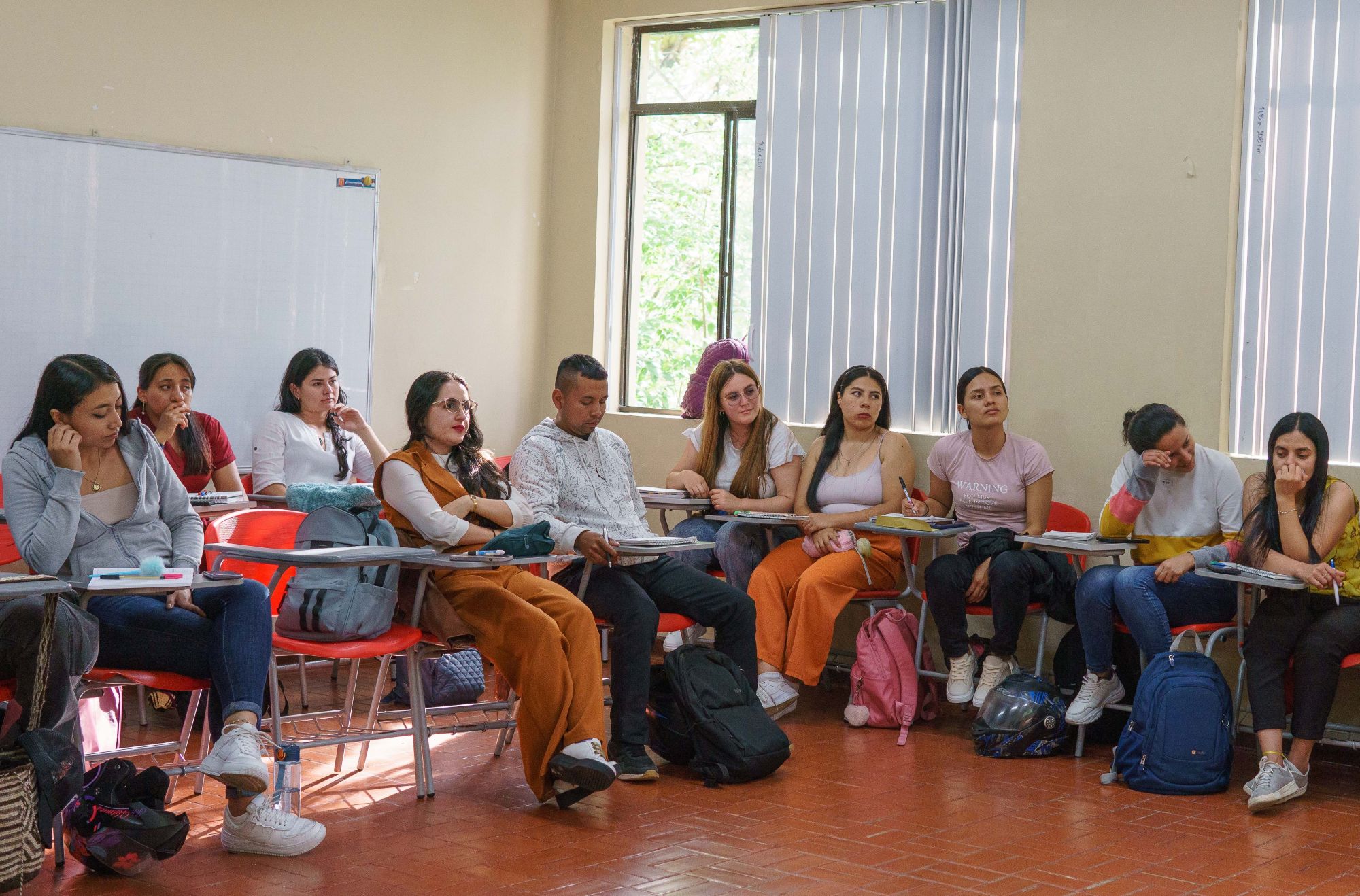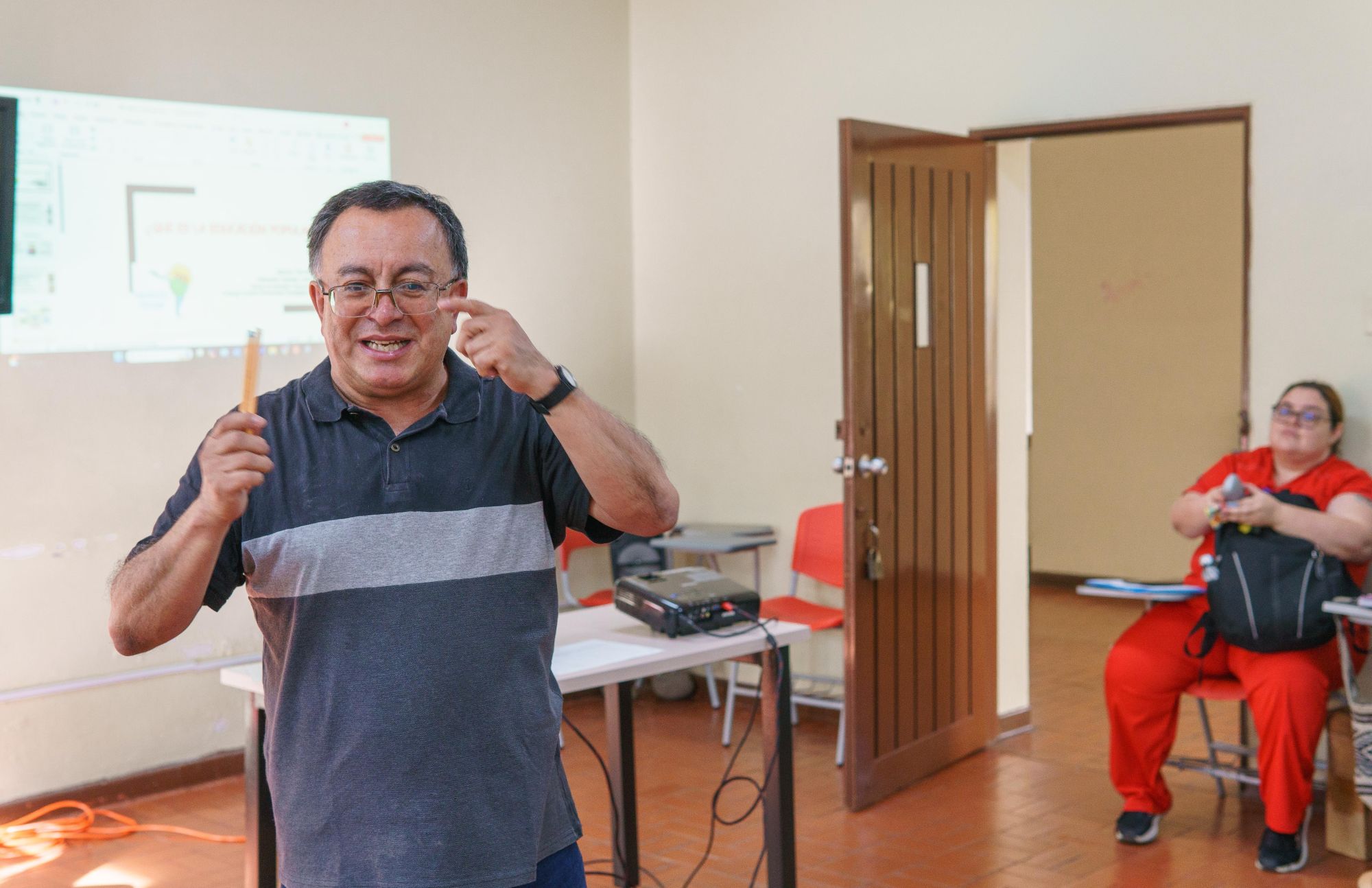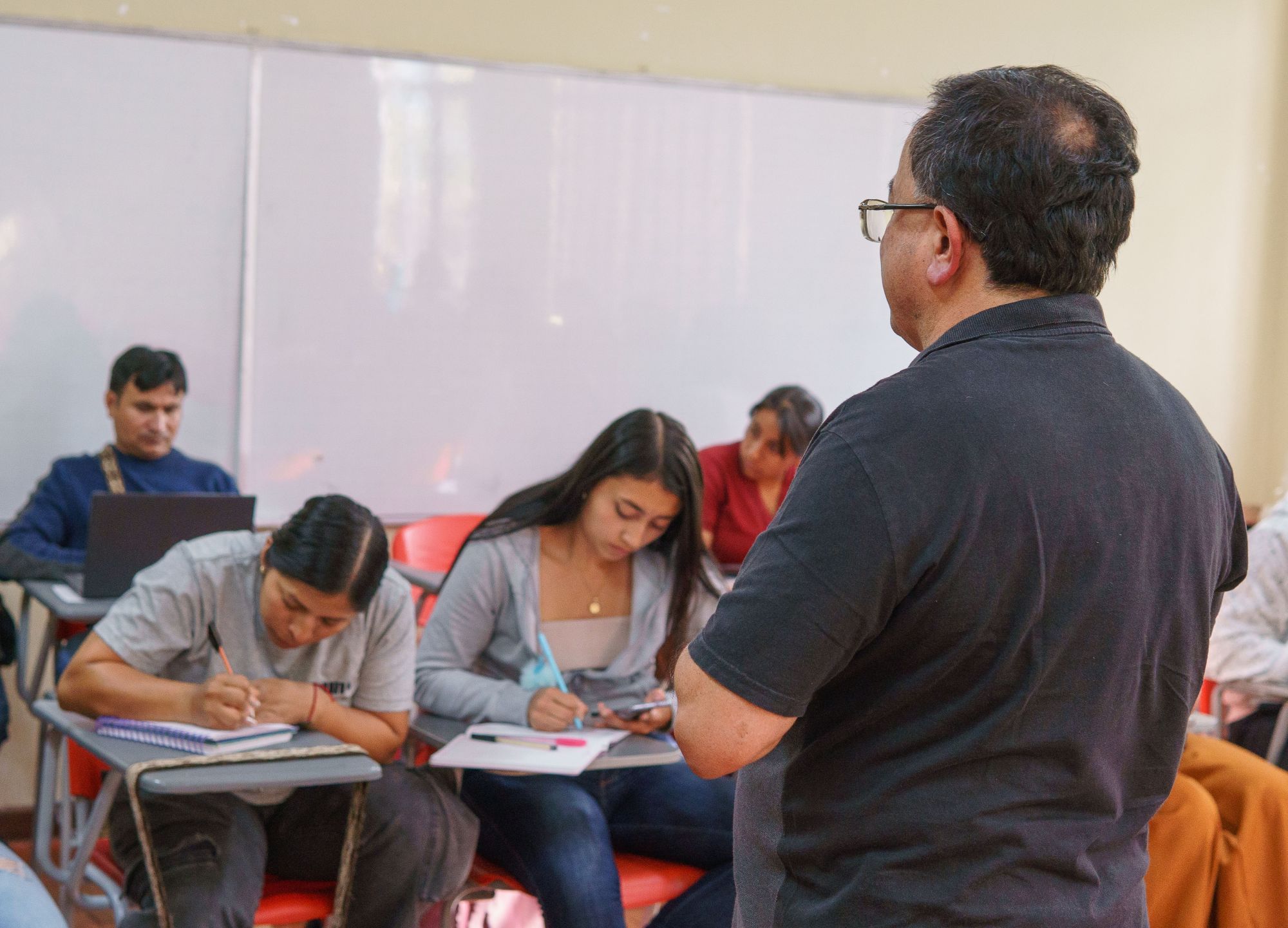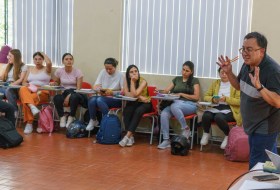News
Unicaucá’s Master's Program in Popular Education Reflects on the Role of Social Movements Today
With the participation of Alfonso Torres Carrillo, a professor at the National Pedagogical University, the graduate program of the University of Cauca held the seminar “Popular Education in its Relationship with Social Movements.”
The graduate program in Popular Education at the University of Cauca held the seminar “Popular Education in its Relationship with Social Movements” on March 28 and 29 at the Faculty of Natural, Exact, and Educational Sciences. The event, which featured Professor Alfonso Torres Carrillo from the National Pedagogical University, allowed for an analysis of the shortcomings of social movements when they remain at the local level, in the personal and community realm, without transcending into more political, societal dynamics that imply transformation.

Provided photo
“One of the advantages of this Master's program is that a large part of its students participate in organizations, community processes, and social movements, and some even identify with indigenous and popular education. This allows for reflecting on the prior knowledge they bring, but also offering them a Latin American perspective of what is done and thought about in other countries, so we can emerge stronger,” said the popular educator, Alfonso Torres.
Regarding the theme of his seminar, the professor points out that a characteristic feature of contemporary societies is the presence of movements, social organizations, and collective mobilization dynamics that exceed what has been established as institutions. This is because people, around common interests, act to build new institutional structures, within which they transform their perspectives, gain capacities, and form new values. In other words, there is an entire educational potential in what is happening.

Provided photo
“The place where Popular Education is happiest is in social movements. While Popular Education can be carried out in schools and other spaces, historically, and in the future, the great stage has been social movements, because they are where the new desires and meanings of those who want to build other forms of social life are particularly visible. This is only possible through education with solid educational proposals,” adds Professor Alfonso Torres, recalling the renowned Brazilian educator João Francisco de Sousa.
For Alfonso Torres, another Achilles’ heel of social movements is that, once they have conquered political institutional spaces, they fall into bureaucratization and into high levels of institutionalization with very heavy structures that hinder the development of the movements themselves.
“This is the dialectic between what institutes and what is instituted. When these movements do not incorporate solid educational proposals, which also carry new content and new ways of working, what they often do is reproduce exactly what they criticize. They fall into formats that are contrary to what one would expect.”

Provided photo
Today, Popular Education seeks not only to focus on the intellectual, on the cognitive, but also on all other dimensions that build us as humanity. “It is the permanent recreation, affirming the transformative political sense that gives it its identity, but recognizing that these transformations occur on different scales, in different planes. The intellectual is as important as the emotional, the willful, everything that makes us human,” concludes popular educator Alfonso Torres.
The Master’s Program in Popular Education arises from the need presented in the region and the country to train individuals who seek the transformation of social and educational processes. It also proposes a comprehensive and reflective approach to reality, recognizing its various factors, in order to build a collective exercise that motivates processes of transformation of the realities themselves, recognizing dialogue of knowledge, critical reflection, and participation as central axes of its proposal.
The axes on which the reflections will be articulated will focus on permanent problematization, which guide the various research and deepening projects of each participant in the Master’s program (guides and students).
Written by: Communications Management Center


